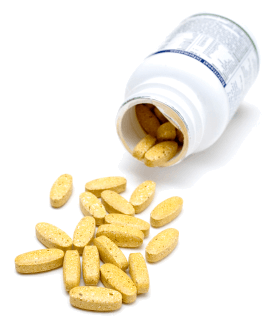Supplements Slandered! Medical Bias Against Dietary Supplements

Neil E. Levin
A consumer magazine recently printed an article sharply critical of dietary supplements. I believe that a medical bias is present in the experts selected by the magazine as their trusted sources for these types of stories. These supplements' safety record as found in peer-reviewed, published science is far from what I read in the magazine's report.
It is clear that many medical and regulatory officials do not understand or respect dietary supplements. They do not believe that they are regulated properly (like drugs), even when the FDA claims adequate enforcement powers. Where there is a conflict between a food and a drug, or an herb and a drug, the doctors assume that the drug is necessary, but the supplement or food needs to be restricted for daring to interfere with their medical treatments.
If another country bans a supplement, that is fuel to criticize our government for not banning it, too. But that argument doesn't apply to our government's refusal to accept foreign approvals of new drugs, making drug companies repeat their testing in this country, raising the cost of drugs and delaying their introduction to our market.
The herb ephedra was banned based on the novel theory that because supplements' safety is assumed rather than proven, that the government needs only a reasonable suspicion of human harm to take action, rather than actual evidence of harm. "...historical use is not always enough by itself to prove the safety of a supplement even if it has been consumed for centuries or used in folk medicine...." Only the gigantic amount of pressure in the media from misguided consumer advocates led the government to overrule the FDA's experts and institute the ban. This proves that the FDA has at least enough power to regulate supplements. They are now banning androstene because it is banned from most sports as a 'performance enhancer'.
The regulations proposed for dietary supplements are stricter than the requirements for over-the-counter drugs, which kill thousands of people. Dietary supplements are mistakenly linked to 150 deaths a year, but the actual death statistics list only a handful of probable deaths: typically zero from vitamins, a few from iron supplements, and maybe five a year from all plant poisonings.
Another herb, bitter orange (Citrus aurantium), does NOT have a similar action to ephedra, contrary to what the article states. It does not have the same central nervous system effects nor constrict blood vessels and raise blood pressure. In one study bitter orange actually helped regulate irregular heartbeat.
The Polynesian herb kava kava is accused of "probably" causing liver disease. A noted toxicologist looked at the evidence and pronounced it to be only a few unrelated cases, with no real link between liver damage and kava use. But kava suppliers are finding it harder to get liability insurance because of the media scares. Some countries have banned kava.
By design or by ignorance, dietary supplements are being persecuted despite their lack of deadly potential. Medical and pharmaceutical interests are pushing politicians and consumer groups to clamp down on products that are safer than the food we eat. Food allergies kill hundreds of people a year; food poisoning thousands. Less than a handful of deaths are scientifically and medically linked to supplements, and they are so far below the statistical measurement standards as to be virtually zero.
We are warned to avoid taking more than the so-called Safe Upper Limits for vitamins. These SULs are sometimes arbitrarily set even without evidence proving that higher levels are harmful. The NAS allows SULs to be set by adding 20% to the estimated daily average intake, despite lacking proof that our intake is either adequate or overabundant.
This is medical bias against dietary supplements! I am sick of the unbelievable gall of those who think that I will believe them when they tell me that safe things are dangerous, that they can set limits on my diet based solely on their unproven theories, and that the government regulators are always my unbiased friends and protectors. The FDA has repeatedly said that it has the tools to regulate supplements and protect the public. Why don't the experts and politicians believe them?
Health Disclaimer. Content provided by NOW Foods. Copyright ©2006-2020. Published with permission. Neil E. Levin CCCN, DANLA is a certified clinical nutritionist and is a professional member of the International & American Associations of Clinical Nutritionists.
